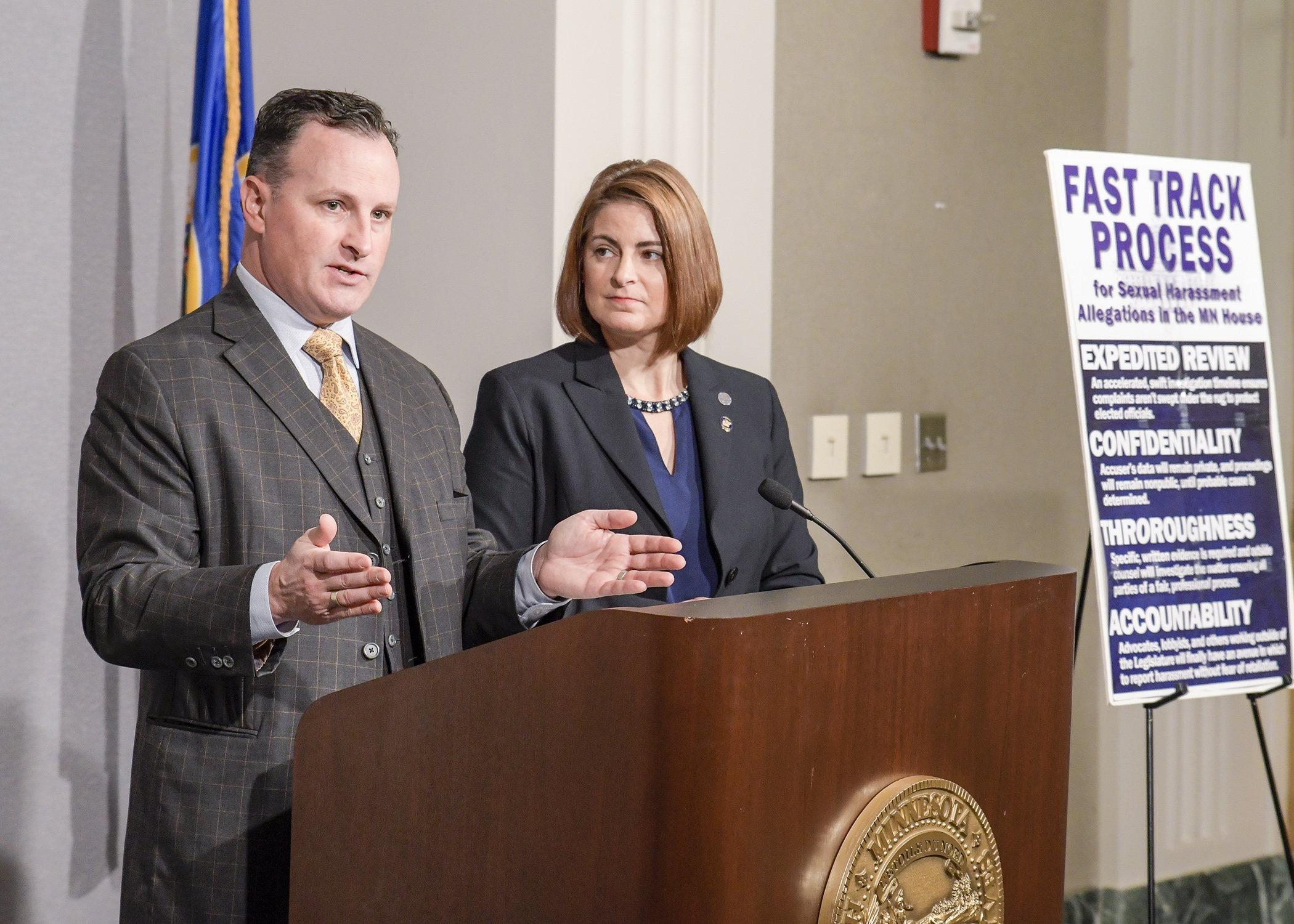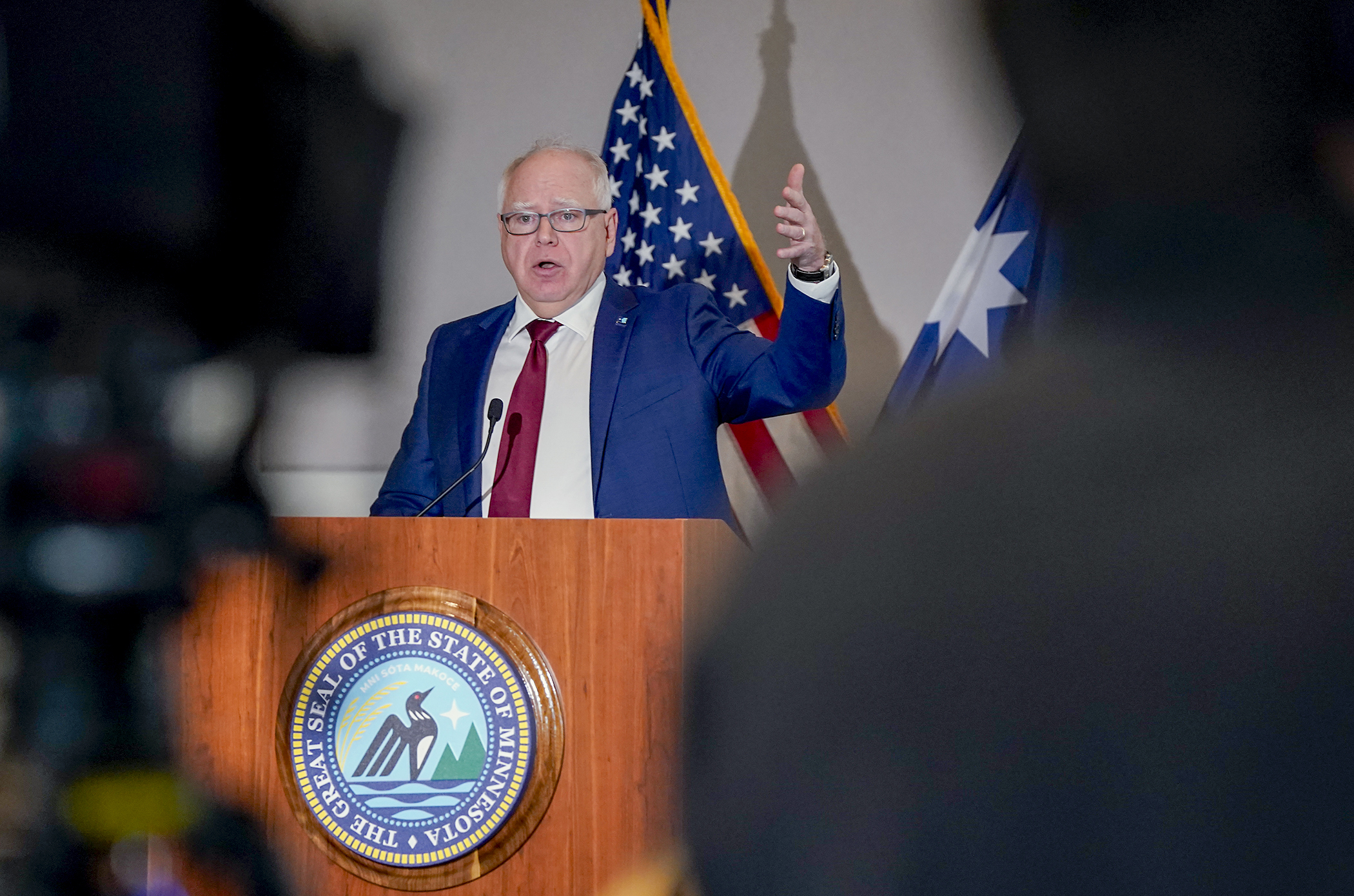House rules for handling harassment complaints would change under bipartisan plan

A bipartisan pair of lawmakers has unveiled proposed changes to House rules that would alter how the institution handles accusations of sexual harassment.
Rep. John Lesch (DFL-St. Paul) and Rep. Marion O'Neill (R-Maple Lake) said Monday their aim is to institute a clear, fair process for dealing with allegations of sexual harassment against House members — and one that avoids any whiff of partisanship, or that appears to unfairly protect elected officials.
The proposal follows a string of allegations of sexual harassment leveled against two legislators in recent weeks. Former Rep. Tony Cornish (R-Vernon Center) resigned earlier this month, and Sen. Dan Schoen (DFL-St. Paul Park) is set to formally resign this week, after accusations of inappropriate conduct.
“This workplace has to be a safe place,” O’Neill said during a news conference announcing the proposed measures. “That’s our No. 1 goal.”
Lesch and O’Neill’s proposed rule changes would expedite the investigation process when allegations are reported, provide confidentiality to complainants, and would ensure due process protections are afforded to all parties involved in a complaint.
The leaders of both House caucuses would be automatically notified of a sexual harassment or discrimination complaint when it is filed, whether by a fellow House member, member of the public, lobbyist or executive branch official.
WATCH Full video of Monday's news conference
“It’s clear the current mechanisms to address this behavior aren’t sufficient to ensure legislators, staff, lobbyists and others can carry out their duties in an environment free from harmful behaviors,” Lesch said in a statement.
Under current House rules, the only official way for individuals to seek redress for alleged inappropriate conduct is through an ethics committee process that Lesch and O’Neill say often goes nowhere and has no clear timetable.
After filing a written, specific complaint with both the House majority and minority leaders, their proposal would require the issue be referred to the House Ethics Committee within seven days.
Other deadlines would include:
- a nonpublic probable cause hearing before the committee within 30 days;
- a public contested hearing on the merits of the complaint no later than 60 days after the probable cause hearing; and
- a disposition and ruling must be filed by the committee chair within 90 days of receiving the initial complaint.
Lesch and O’Neill said the proposed changes will be offered as an amendment on the House Floor when the 2018 session convenes Feb. 20.
The lawmakers said their proposal, while also providing a clear path forward, would offer both parties in a complaint a fair process for addressing the allegations. In a highly politicized environment like the Legislature, O’Neill said, ensuring due process for both parties would assure allegations don’t become “political weapons.”
Related Articles
Search Session Daily
Advanced Search OptionsPriority Dailies
Full House convenes for first time in 2025, elects Demuth speaker
By Tim Walker DFL, Republicans convene with a quorum for the first time in 2025 session after agreeing to a power-sharing deal.
DFL, Republicans convene with a quorum for the first time in 2025 session after agreeing to a power-sharing deal.
Walz proposes slimmed-down 2026-27 state budget, sales tax changes
By Tim Walker This is an odd-numbered year, and so the Legislature is constitutionally required to craft a budget to fund the state government for the next two fiscal years.
Gov. Tim Walz...
This is an odd-numbered year, and so the Legislature is constitutionally required to craft a budget to fund the state government for the next two fiscal years.
Gov. Tim Walz...